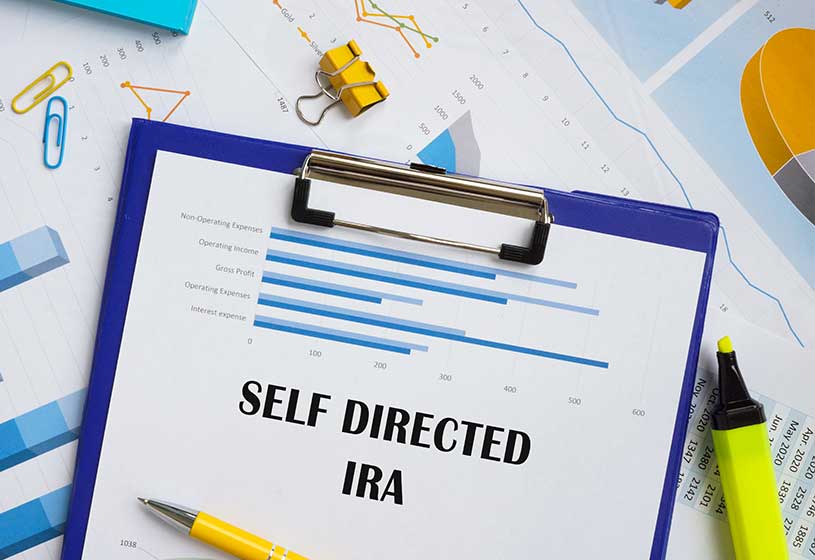Investing in real estate through a self-directed Individual Retirement Account (IRA) can be a lucrative strategy, but it comes with its own set of rules and considerations. In this comprehensive guide, we will delve into everything about self-directed IRA for real estate and highlight key factors you should be aware of to make informed investment decisions.
The Power of Self-Directed IRAs
A self-directed IRA empowers you to take control of your retirement savings and invest in a wide range of assets, including real estate. With this flexibility, you can diversify your retirement portfolio and potentially enjoy the benefits of real estate appreciation and rental income. However, it is crucial to navigate this investment strategy wisely.
At Nevada Trust Company, we understand the potential of self-directed IRAs for real estate investments. As a leader in providing custody and escrow services, we assist individuals like you in managing self-directed IRAs and Nevada Asset Protection Trusts. Our expertise can help you harness the full potential of your self-directed IRA for real estate investments.
Consideration #1: Eligible Real Estate Investments
Not all real estate investments are eligible for a self-directed IRA. While you can invest in various types of real estate, including residential, commercial, and rental properties, there are restrictions on certain investments, such as purchasing property for personal use or investing in properties with disqualified persons, such as close family members.
Consideration #2: IRA Ownership Structure
When using a self-directed IRA for real estate investment, you must ensure that the IRA owns the property, not you personally. The title should reflect the IRA’s ownership, and all expenses and income related to the property should flow in and out of the IRA account.
Consideration #3: Prohibited Transactions
The IRS imposes rules to prevent self-dealing and conflicts of interest within self-directed IRAs. Prohibited transactions, such as using the property for personal use or providing services to the property, can result in severe penalties and taxes. It is essential to understand these rules and avoid any actions that could jeopardize your IRA’s tax-deferred status.
Consideration #4: Property Management
Managing a real estate investment within your self-directed IRA requires a well-thought-out plan. You will need to consider property maintenance, finding tenants (if it is a rental property), and handling expenses, all while adhering to IRS rules. Some investors choose to hire a property manager to ensure compliance and efficient management.
Consideration #5: Funding Your Self-Directed IRA
Funding your self-directed IRA for real estate investments can be done through contributions, transfers, or rollovers from other retirement accounts. Carefully evaluate your funding options and consult a financial advisor to make the most tax-efficient choices.
Consideration #6: Tax Implications
Real estate transactions within a self-directed IRA have tax implications that differ from traditional investments. While you can enjoy tax-deferred growth and potentially tax-free distributions upon retirement, there are also potential tax traps to be aware of, such as unrelated business income tax (UBIT) for certain activities within the IRA.
Consideration #7: Diversification
While real estate can be a lucrative investment, it is essential to maintain a diversified portfolio within your self-directed IRA. Overinvesting in real estate can expose your retirement savings to significant risks. Consider balancing real estate with other asset classes to spread risk effectively.
Consideration #8: Professional Guidance
Navigating the complexities of self-directed IRAs for real estate investments requires professional guidance. Working with financial advisors and experts in self-directed IRAs, like those at Nevada Trust Company, can help you make informed decisions, avoid pitfalls, and ensure compliance with IRS regulations.
Consideration #9: Exit Strategy
Before investing in real estate within your self-directed IRA, it is essential to have a clear exit strategy. Real estate investments can be illiquid, and selling a property may take time. Consider factors such as the potential resale value, market conditions, and your retirement timeline when formulating your exit plan.
Consideration #10: Property Valuation and Appraisal
Accurate property valuation is critical when investing in real estate through your self-directed IRA. You will need to obtain professional appraisals to determine the property’s fair market value, which is essential for reporting to the IRS. Accurate valuation ensures that you are complying with IRS regulations and helps you make informed investment decisions.
A self-directed IRA for real estate can be a powerful wealth-building tool for your retirement. However, it is crucial to approach this strategy with careful consideration of the rules and responsibilities involved. With the right knowledge and guidance, you can unlock the potential of real estate investments within your self-directed IRA and work toward a secure financial future. Nevada Trust Company specializes in facilitating self-directed IRAs, offering comprehensive guidance and support to help you navigate real estate investments and other opportunities within your IRA.
Remember, making informed decisions today can lead to a prosperous retirement tomorrow. Contact us today for personalized assistance!





